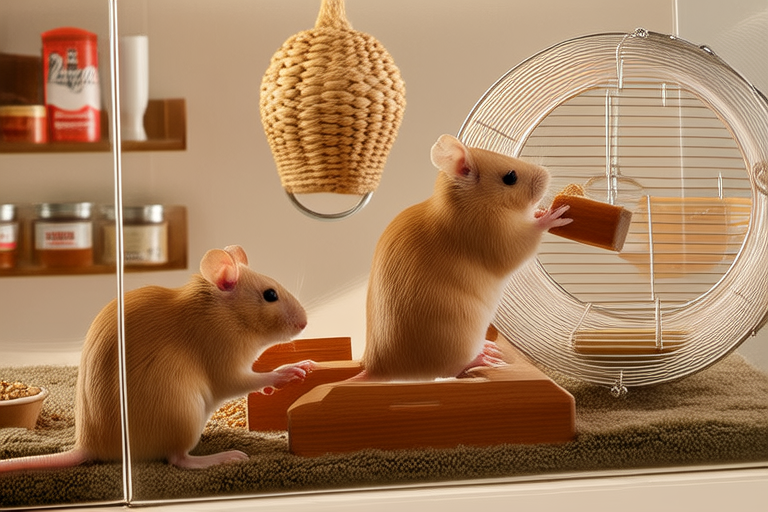How to Create a Perfect Habitat for Your Fancy Rat Buddies
Introduction to Fancy Rats’ Needs
Fancy rats, also known as domesticated brown rats, are intelligent, social creatures that thrive on companionship and mental stimulation. Originating from wild brown rats, these pets have been selectively bred for their docile nature and vibrant colors. Understanding your fancy rat’s needs is crucial for their well-being. Rats are nocturnal, meaning they are most active during the night, and they require a stimulating environment that encourages exploration and play.
Ideal Cage Size and Type
The cage is the heart of your fancy rat’s habitat. It should be large enough to accommodate multiple rats comfortably, with ample space for running, playing, and climbing. A single rat requires at least 4 square feet of living space; for multiple rats, increase this area proportionally. Opt for a cage with a solid floor rather than wire, as wire can cause foot injuries. Bar spacing should be less than half an inch to prevent escapes or injuries.
Bedding Options
Choosing the right bedding is vital for your rat’s comfort and health. Avoid cedar and pine shavings, which contain oils harmful to rats. Instead, opt for aspen shavings, paper-based bedding, or recycled paper products like Carefresh. These materials are soft, absorbent, and safe for your pet. Regularly change the bedding to keep the cage fresh and clean, ideally every few days or more frequently if there is strong odor.
Toys and Enrichment
Rats are curious and playful animals, so providing a variety of toys and activities is essential. Offer chew toys made from safe materials like untreated wood or cardboard to help them maintain healthy teeth. Ropes, tunnels, and hanging structures encourage climbing and exploration. Rotate toys periodically to keep the environment exciting and prevent boredom.
Diet Specifics
A balanced diet is key to your rat’s health. Provide a high-quality pelleted food designed for rats, supplemented with fresh vegetables and fruits. Leafy greens, carrots, and apples are excellent choices. Ensure access to fresh water at all times. Limit treats to avoid obesity and tooth decay. Consult with a veterinarian about appropriate supplements if needed.
Hiding Spots and Resting Areas
Rats are naturally shy and benefit from having safe, cozy hiding spots. Cardboard boxes, tunnels, and small igloos make great hideouts. These areas should be easily accessible but secure enough to provide a sense of security. Ensure there are enough spaces for each rat, especially in multi-rat households, to reduce stress and promote harmony.
Cleaning Schedule
Maintaining a clean cage is crucial for your rat’s health. Aim to spot-clean daily by removing soiled bedding and uneaten food. Perform a thorough cleaning weekly, washing the cage and accessories with mild soap and water, then rinse thoroughly and allow to dry completely before replacing bedding. This routine helps prevent bacterial growth and keeps your rats happy and healthy.
Temperature and Humidity Preferences
Fancy rats prefer moderate temperatures between 65°F and 75°F (18°C to 24°C). Extreme heat or cold can cause stress or illness. Maintain humidity levels between 30% and 70%, using a humidifier or dehumidifier if necessary. Monitor these conditions regularly, especially during seasonal changes.
Safety Precautions
Ensure the cage is placed in a quiet area away from direct sunlight and drafts. Keep it out of reach of other pets and children. Secure the cage to prevent accidental tipping. Use smooth, rounded edges on any cage additions to avoid injury. Regularly check toys and accessories for wear and tear, replacing them promptly if damaged.
Tips for Maintaining a Healthy Environment
Regular interaction and handling are important for bonding and reducing stress. Spend time with your rats daily, offering gentle play and attention. Observe their behavior and appetite for early signs of illness. Regular veterinary check-ups are recommended, especially for older rats or those showing unusual symptoms. Encourage exercise and mental stimulation to keep your rats active and engaged.
